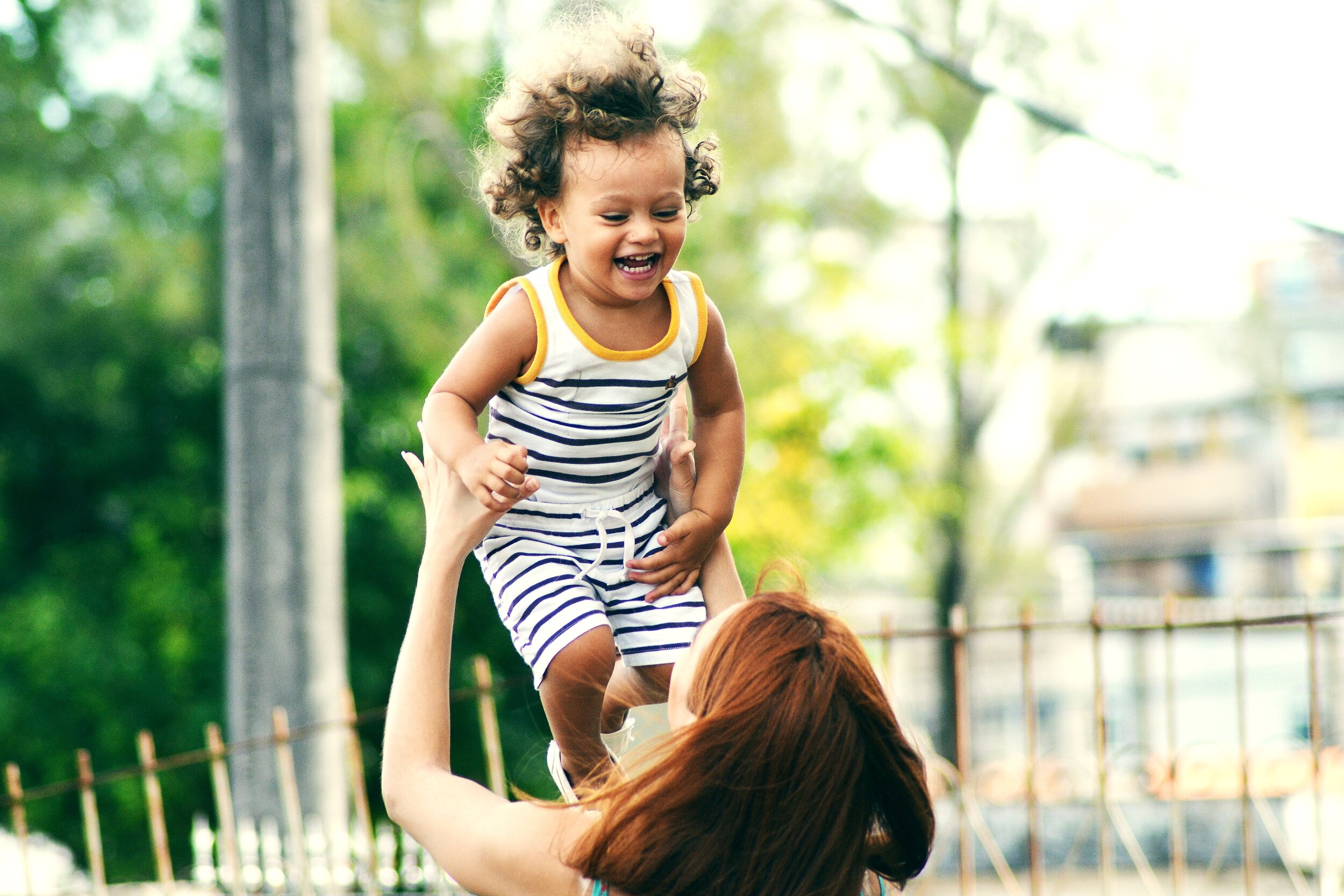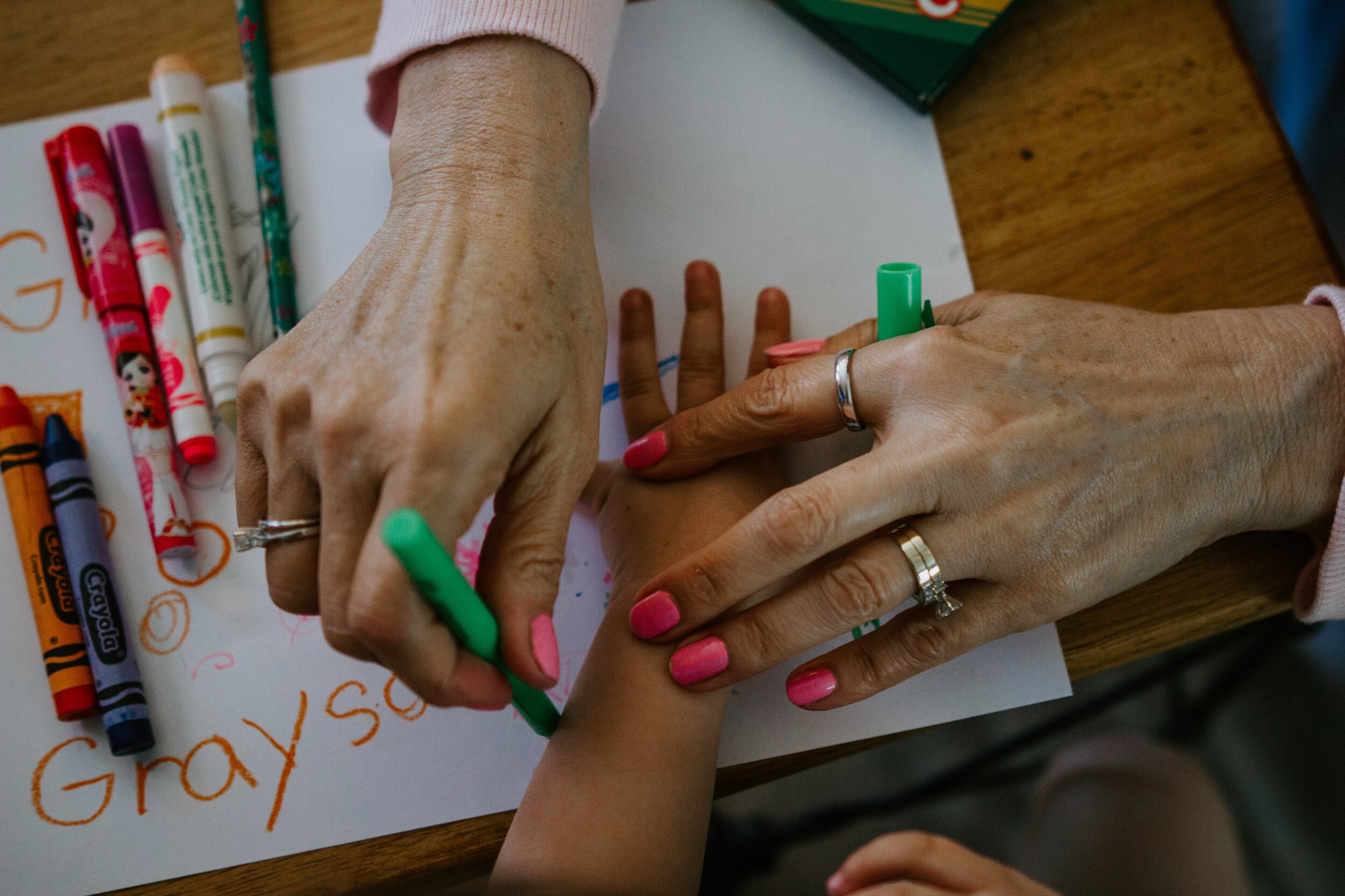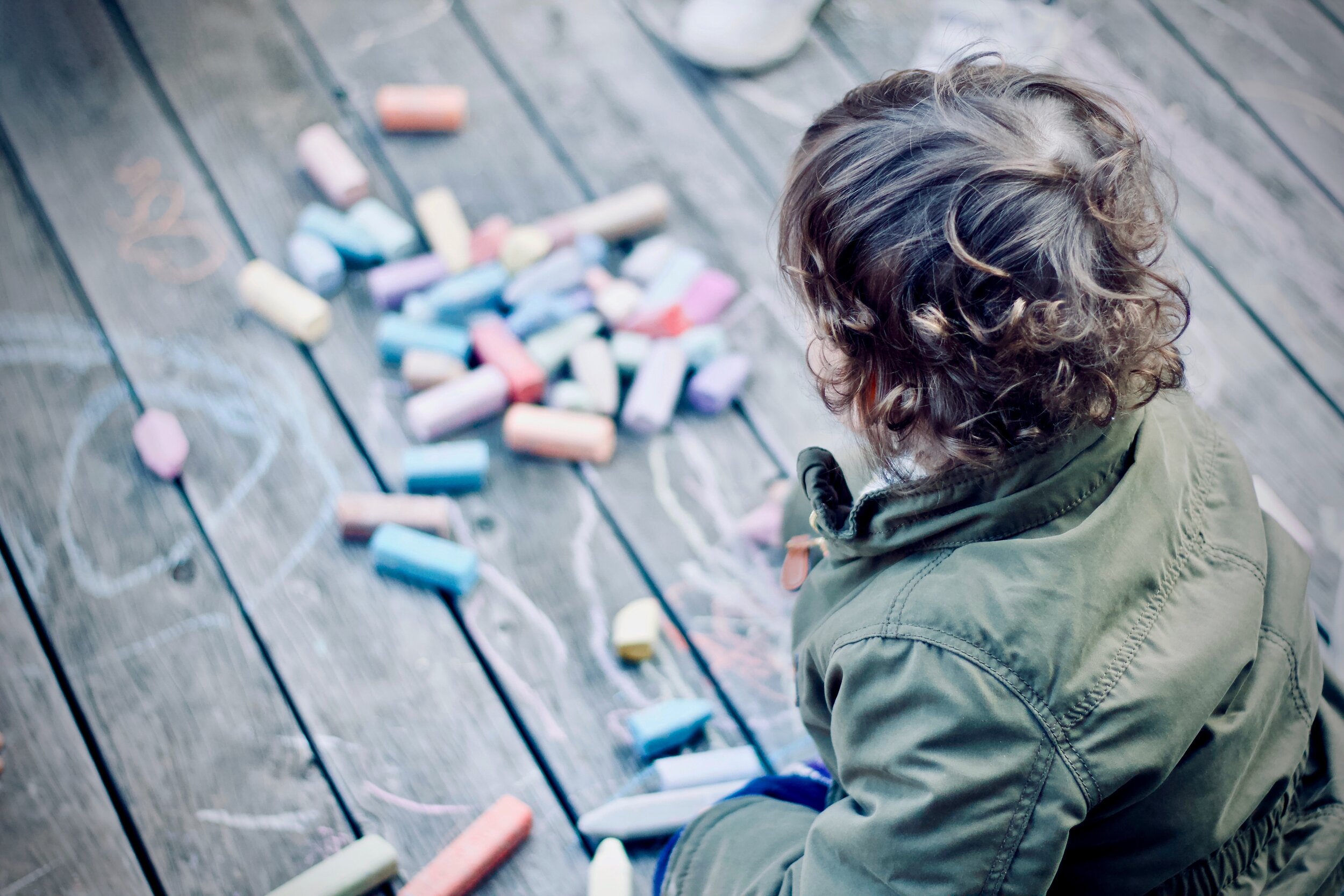
Supporting Anxious Children During the Holidays
‘Tis the season for the fun holiday cheer, school breaks, get-togethers, traditions, and cookies….ohh the cookies! With all the joy, why is it that the holidays can also be so stressful for your child and family? Children with anxiety may not always look forward to the ever changing holiday hustle and bustle and if they do, their brains are still learning to adjust. While Covid-19 has changed much of how we celebrate or approach holiday traditions, the holidays in general can peak anxiety in children. School breaks might feel like a relief of stress for many kids, however, this break in routine can trigger stress for children with anxiety, as well as their families. So, what do you do?

Understanding Psychoeducational Testing Terms: Verbal Comprehension
Verbal Comprehension Skills are a likely and common cognitive area assessed during your child’s comprehensive psychoeducational or neurodevelopmental evaluation. Why? Verbal Comprehension is a foundational and important cognitive process that aids in your child’s ability to understand and apply word knowledge and it is particularly relevant to nearly all aspects of your child’s academic, socio-emotional, and day-to-day interactions.

How can I use time-outs effectively?
To learn whether time-outs are appropriate for your child’s development, behavior, or situation, check out Should I use time-outs for my child? Part 1: Understanding “time-outs” and whether they are appropriate to manage your child’s behavior. Next step is to break down the time-out in order to use it as part of your approach to reduce undesired behavior, rather than the sole strategy. Remember, the goal is to work with your child’s natural brain development to foster an environment where they can routinely and repetitively practice skills in a safe way.. A “time-out” is actually a term for “time out from reinforcement,” meaning that the strategy itself is grounded as a form of using punishment to shape behavior. Thus, time-outs should be used intentionally and predictably as part of a positive means of supporting child behavior and not the only consequence. If time-out is used inappropriately in the long term, without other strategies, you may actually reinforce negative behaviors or habits, such as your child’s tendency to hide feelings, withhold asking questions, or develop fear responses. Without an opportunity to learn and routinely practice healthy ways of coping or other appropriate behaviors, children may develop other unhealthy or negative habits. Why? Children…

Should I use time-outs for my child?
Chances are you have likely utilized some form of “time-out” or have questioned the best way to follow through with consequences for undesired, unsafe, or frustrating child behavior. Maybe time-outs were effective for you growing up or effective for another child. If you are curious about the best ways to reduce negative child behavior and teach your child healthy coping and skills, it is important to know some facts about child development and the brain. The thing this…what might work best for one caregiver, child, or situation may differ, however it can be helpful to highlight some ways that time-outs may or may not be helpful or healthy for your child’s development and coping….

How Can I Help My Child Improve Self-Regulation?
Do you remember the first day you sat behind the wheel to drive? It was likely a mixture of nerves, excitement, and pure terror. Will I be okay? Will I be a natural? What obstacles do I need to anticipate? You may have first observed your caregivers driving, then learned the facts about cars and safe driving, practiced with an adult, and continually learned over time. While at first you may have felt the nerves and had no idea what you were doing, driving has likely become so automatic you don’t even have to process the skills, or the green light you just passed through. Driving a car, riding a bike, playing an instrument, and even parenting are all examples of activities that we don’t just naturally pick up, despite our desire or preparation to do so. We need to practice. As adults we are not expected to instantly know how to do new and complex things. We approach self-regulation skills in the way we approach other skills. Children need to learn and continually practice how to regulate their emotions and behavior in the context of supportive relationships. Just when we might master one skill, a new situation will arise that requires us to adapt and respond. Thus, learning to self-regulate is a developmental and continual process. Understanding the basics of how a child’s brain learns can help, as merely teaching “skills” to regulate behavior is not sufficient. Self-Regulation is the ability to …

What questions do I ask a psychologist who is working with my child?
Developmentally, it’s common for children to engage in noncompliance or difficult behavior from time to time…. ignoring instructions, pushing boundaries, forgetfulness, tantrums, sibling feuds….this list goes on an on. Parents, do you have a few more on your mind? As caregivers, you likely consider these the “survive” versus “thrive” moments where simply managing to get through the day, the long car ride, or the dinner time chaos is an absolute win. For children, this is their brain’s way of making sense of the world. Whether the challenging behavior is their way of adapting to change, communicating they are having a hard time, problem solving, or simply connecting with others, with the support of loved ones they are able adjust, learn new coping skills, and “thrive.” However, some children may be prone to more challenging behaviors, which can be even harder to manage as a caregiver. Behavior difficulties resulting from symptoms of Attention-Deficit/Hyperactivity Disorder (ADHD) and other concerns with behavioral or emotional dysregulation can impact the caregiver-child relationship. These enduring challenges with regulating behavior and emotions can add stress to both the lives of the child and the lives of the loved ones that they rely so heavily on for support.

What is a Child Psychologist?
If you type the word “psychologist” into your search engine you may find there is an extensive and albeit confusing list of different titles, definitions, and roles. When it comes to seeking support for your child, adolescent, or family, it is helpful to be aware of a few key distinctions about the field of psychology and of licensed psychologists who can support your child. If you have general questions about the difference between a psychologist, therapist, counselor, or psychiatrist check out the FAQ page here. Whether you have a desire to become a psychologist or you are a parent seeking answers or support for your child, here are a few general things to know about child psychologists and the similarities and differences they have with other professionals in the field. What is psychology? Psychology itself is the study of the brain and it’s functions. This includes how our brain impacts behavior in certain environments. Essentially, psychologists study the mind, how it works, and how it impacts behavior. As you can imagine, this covers a lot of different areas and specialties.

Behind the Behavior Psychology, PLLC now in both North Carolina and South Carolina.
Dr. Bobal, psychologist and owner of BTB Psychology, is licensed to practice in South Carolina and North Carolina via in-person and telehealth. What does this mean for you? Families still have the ability to meet at BTB Psychology’s main site in Charlotte, NC as well as via telehealth in North and South Carolina. Looking for in-person appointments outside of the Charlotte area? Ask Dr. Bobal about BTB Psychology’s satellite sites throughout the Carolinas. BTB Psychology offers comprehensive psychoeducational evaluations, diagnostic evaluations for ADHD, Autism, Dyslexia, and other Learning Disorders, as well as Behavioral Parent Training, individual/family therapy, and school consultation for Individualized Education Programs and 504 Plans.

How can I prepare my child for psychoeducational testing?
Private psychoeducational evaluations are comprehensive in nature and can assess your child’s cognitive/learning abilities, language, patterns of strengths and weaknesses, academic skills, processing and memory, executive functioning, and socio-emotional functioning, as well diagnostic clarity on any concerns. While schools do conduct thorough psychoeducational evaluations, they are for the primary purpose of determining eligibility for special education services or monitoring progress of children who receive special education. Therefore, private psychoeducational evaluations are not bound by the same eligibility purposes. Best part is, many private evaluators still work with your child’s school and you will have a psychologist or neuropsychologist there to walk you through tailored recommendations.

How can a psychologist help support my child with diabetes?
Diabetes is a chronic medical diagnosis that adversely impacts a person’s ability to produce or utilize necessary levels of insulin. This is important as insulin is a hormone that is needed to regulate the sugar our body uses for energy. Having your child be diagnosed with diabetes is the start of treatment that addresses the short and long term effects that this chronic illness can have on children, adolescents, and families. The immediate and on-going treatment of diabetes is often managed effectively under the care of a comprehensive diabetes treatment team, which consists of a range of different health care professionals, including an endocrinologist, physicians, nurses, dieticians, therapists, and of course…the parents. However, the impact that diabetes has on the short and long term psychological well-being of children is not often addressed unless there are mental health professionals involved on these treatment teams. This does not mean that the medical providers managing diabetes do not have adequate expertise in supporting your child’s health, but the focus is on the medical and physical components of the diagnosis. Many endocrinologists and physicians consult with mental health professionals and/or refer out if there is not a pediatric psychologist as part of the team. Why? Emotional well-being is an essential component to the physical management of diabetes. Psychologists, especially those trained in health psychology, pediatric psychology, and/or diabetes treatment play a vital role in the adjustment and day-to-day coping with diabetes.

Where can I get ADHD testing for my child?
As a parent, it is your innate response to keep your child safe, help them grow, and find ways to support their needs. Part of this process is knowing when you need outside support to help you find answers to better support your child or teen. You have likely typed in Attention-Deficit/Hyperactivity Disorder (ADHD) into your search engine in some form or have heard about it in your day-to-day interactions. ADHD is one of the most common Neurodevelopmental Disorders and is typically first diagnosed in school-aged children, with symptoms continuing to impact aspects of functioning into adulthood. Children with ADHD likely have trouble paying attention or regulating behaviors necessary to function effectively or consistently across school, home, and community settings. Currently, there are three subtypes of ADHD, including Predominantly Inattentive Presentation (often referred to as “ADD”), Predominantly Hyperactive-Impulsive Presentation, and Combined Presentation. Prior to learning about who diagnoses or where to find treatment, it is important to clarify a few details. First, it is important to note that there is no single medical or psychological test for ADHD.

How to improve my child’s behavior: The power of positive attention
Attention. A word we hear often in conversations with children, teens, and adults. Do “they are just attention seeking,” or “they’re just doing it for attention,” come to mind? Let’s replace the word attention with “connection.” Children not only enjoy connection, they need it. As adults, we are able to differentiate between negative attention (e.g., boss reprimanding you) and positive attention (e.g., gift from a loved one) and we guide our behavior based on those interactions. The child brain is still developing and interprets this attention quite differently. If children do not receive feedback for their attempts to engage in new or appropriate behavior, the attempts may cease or the opposite might happen. They may do inappropriate behaviors in order to get attention from you—or simply to connect. See, for many children, any attention is good attention, just as any connection is good connection. Therefore, connecting with your child for their attempts to try new things or their engagement in appropriate behavior is one of the most effective ways to teach new behavior and encourage resiliency. It will also increase the likelihood that your child or teen will engage in more appropriate ways for connection in the future.
There are several different types of positive attention or ways to connect with your child…

Ways to Improve Child Behavior and Family Relationships
Like the individuals that make them up, families too are a collection of past experiences that ultimately guide all interactions, perspectives, and habits. The actions of individual family members, whether child or caregiver, mutually reinforce one another and facilitate routine ways of interacting and communicating. What does this mean? If your child is navigating a challenging transition, you will likely experience frustration, concern, or a change of habits yourself. If these behaviors become consistent over time, you may develop your own routines or parenting habits. Overall, changing the perspectives or behaviors of one individual in the family will always have some impact on how the family as a “unit” functions. It’s like throwing a rock on a still lake, there is always a ripple effect. Noticing the “negative” is part of human nature. This is because noticing what is “wrong” is usually the most obvious, frustrating, and triggering. While noticing what is wrong serves it’s purpose for survival, support, and care for a child, focusing too heavily on the wrong can lead to negative and problematic cycles. Some children are more prone to receiving negative feedback due to increased likelihood of dysregulated or problematic behavior, such as those with Attention-Deficit/Hyperactivity Disorder or other neurodevelopmental disorders. Noticing the positive or even the “average,” is more important, especially as it relates to breaking dysfunctional patterns in families. Noticing and reinforcing the positive attempts or behaviors also helps children learn new appropriate behaviors in the future.

Mental health symptoms in school
Everyone feels sad, angry, or anxious at times. For children and teenagers who are navigating both growing independence, as well as adjustment to change in the school setting, the list of stressors can go on and on. Ordinary worries, stress, or sadness may evolve into distress or impairment. This is particularly common throughout the Covid-19 pandemic when isolation, virtual learning, and other stressors simply exacerbate what is already a big transition for students. Just like caring for physical health, mental health should be addressed and supported openly as research trends show evidence of the increase in anxiety, depression, and other mental health concerns in the school setting. According to the National Alliance on Mental Illness, 1 in 6 school aged children experience mental health conditions each year, yet only half may receive any kind of treatment. Undiagnosed or inadequately treated mental health symptoms can significant interfere with a student’s ability to learn and develop relationships in school. However, it is not always easy to detect symptoms. While schools can be a source of stress for students, they are also the frontline of early detection and ongoing support for mental health.

What are Neurodevelopmental Disorders?
Today’s post will highlight additional classifications in special education, but more importantly signs and symptoms of how Neurodevelopmental Disorders may present themselves in home and school. Let’s break it down- “Neuro,” means brain and “developmental” indicates manifestation in a child’s early growing years. A “disorder” simply means that the symptoms are significantly impairing some aspect of a child’s ability to function in their environment. Neurodevelopmental Disorders are diagnoses that occur within a child’s early developmental period and they can impact thinking, communication, behavior, motor, or other developmental skills due to differences in the brain. Why is this important? Students with Neurodevelopmental Disorders can be challenged with weaknesses in attention, memory, behavior, social engagement, speech, or other skills that are observed as behavior or learning challenges when they transition to mainstream education. Similar to how weaknesses in these areas may impact us at work or in day-to-day activities, children will also struggle with aspects of functioning in their “job” of learning in school. Therefore, even though symptoms are likely evident prior to school entrance (and may be diagnosed at this time), they are recognized most often as a child enters the structured and mainstreamed school setting as this is where impairment in their functioning becomes most apparent.

What is a Specific Learning Disability?
It is not unusual to have a child struggle with a specific topic or subject from time to time. This in itself does not mean they have a learning disability. Children with learning disabilities struggle with a specific set of skills, even when their overall intelligence or other aspects of functioning are not affected. Learning disabilities are a result of brain based differences that make some subjects or school-based activities difficult for children if they do not have accommodations. Children with a learning disability may feel frustrated they cannot complete tasks despite their hard work and you may see hopelessness, behavioral outbursts, withdrawal, or negative perceptions of school develop over time if undetected. Eligibility requirements in determining whether your child can be classified as having a Specific Learning Disability may differ by state, however, in the state of North Carolina a Specific Learning Disability is generally defined as the following.

What is the difference between an Individual Education Program (IEP) and a 504 Plan in school?
By law, schools are required to provide appropriate education for your child, which may include specific accommodations, services, or environments to help them learn. To understand what type of support is needed and what your child may qualify for can be complex. As a parent, it is important to be informed about two important laws that help guarantee your child has access to the support they need in publicly funded schools. There are two terms to be familiar with regarding these laws. The first law includes something called a Section 504 Plan, which may be referred to as a “504 plan,” or more simply as a “504.” The second law includes an Individualized Education Program, which may be referred to as an Individualized Education Plan or more commonly referred to by it’s abbreviation, “IEP.”

How can I use rewards and consequences to motivate my child? Part 2
Alright, you may have a few parent tips and tricks up your sleeve when you are trying to get your child to clean up their toys, get through a grocery trip, or follow through with healthy habits at home. If not, check out Part 1: Using Incentives: How to use rewards to improve/teach child behavior and build emotional resiliency to learn about effective strategies and scripts to use to help foster your child’s behavior and skills. By using strategies that align with your child’s brain development, you help build natural motivation, emotional resiliency, and regulatory skills so they can develop increasing independence and confidence over time. Your child’s behavior cannot always be managed through use of positive rewards or reinforcement as it is natural for them to push boundaries, make mistakes, and learn. While consequences are a natural part of learning, they tend to be rooted in fear-based punishment as this is often the most immediate and possibly satisfying result in the moment. It is also what we have been traditionally trained to do. So if punishment is not the answer, how do I discipline my child?

How can I use rewards and consequences to motivate my child? Part 1
It is important to acknowledge that children are not simply tiny adults. Their brains actually perceive, interpret, and learn differently. However, one thing adults and children have in common is the desire to access rewards. As an adult, you may be motivated to work to make money, go to the gym to experience improvements in physical or mental health, or even drive the speed limit to avoid an expensive ticket. While as adults we have developed many habits to guide our behavior over time, young children are more simply driven by access to, or avoidance of, specific things or contexts. What does this mean? Children tend to engage in behavior that results in a positive response or they engage in behavior that results in avoidance of something they dislike. During frustrating moments or times of crisis, we naturally jump to bribes, consequences, or punishment—because to us, this alleviates even the tiniest bit of frustration in the moment.

Reasons why playing is essential for child development
Play-based activities are one of the most important ways for children to explore, make sense of the world, and develop necessary skills. Play is also one of the most natural and innate processes that children have. Incorporating play based activities is necessary in both providing a context for pre-school aged children to master necessary skills and for them to learn ways to navigate challenges. In addition, school-aged children benefit from play in order to regulate their activity, aid in concentration, process hardships, and to build problem solving skills. Before you buy another expensive electronic reader or listen to another ABC’s YouTube clip, think about how you can incorporate individual or group play activities into your child’s schedule. Need more reasons why it is important to provide space for this exploration to occur? Playing is necessary for children to be able to….